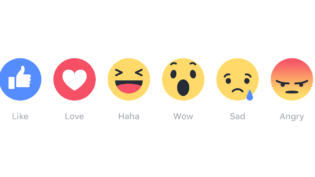Achi news desk-
Last year the Canadian government passed a law, the Online News Act, that would require platforms like Google and Meta to pay publishers for linking to their content. Rather than pay up, Meta pulled news from Facebook and Instagram in Canada.
“News links and content posted by news publishers and broadcasters in Canada will no longer be visible to people in Canada,” Meta said.
Months later, Canadian users seem to be doing very well with Meta without news, while publishers have suffered, according to a preprint paper released by The Media Ecosystem Observatory, a collaboration between McGill and the University of Toronto.
“We expected the disappearance of news on the Meta platforms to have caused a major shock to the Canadian information ecosystem,” said the paper’s authors — Sara Parker, Saewon Park, Zeynep Pehlivan, Alexei Abrahams, Mika Desblancs, Taylor Owen, Jennie Phillips, and Aengus Bridgman — writing. But the shock seems to be one-sided. While “the ban has significantly affected Canadian news outlets,” the authors write, “Meta has deprived users of the affordability of news sharing without suffering any loss in engagement with their user base.”
Using CrowdTangle, the researchers analyzed six months worth of Facebook (not Instagram) posts from 987 Canadian news outlets, 183 non-news pages (belonging to “Canadian federal and provincial politicians, political and advocacy organizations, commentators, and content creators ”), and 589 local community groups or politics. The posts, published between June 1 and December 31, 2023, allowed the researchers to track engagement before and after the news ban. (Meta will shut down CrowdTangle in August; Media Ecosystem Observatory is waiting to hear about accepting access to Meta’s alternative.)
Here are some of the report’s findings:
The researchers tracked posts from 244 Facebook groups related to politics and 345 local community groups that had been “frequent sharers of Canadian news content.” They found that the number of jobs and job engagement after the ban remained largely stable.

“News was either not that important in these groups to begin with, or users within the groups identified ways to circumvent the ban and discuss news content,” the authors write.
One method of prevention: Screenshots.
We are observing a dramatic increase in posts containing screenshots of Canadian news stories in the post-ban era. Before the ban, only about 19 posts a week contained a screenshot of Canadian news. After the ban, the number of posts with Canadian news screenshots triples to an average of 68 posts per week. This increase in news screenshots after the ban is not matched by an overall increase in non-news screenshot images, suggesting that the increase in news screenshots is indeed a result of the news ban.
“We saw quite a wide range of types of news articles [screenshotted] — some from local news sources, but mostly from the larger national-level outlets,” Sara Parker, the paper’s lead author, told me in an email. “Often, people would share one or two screenshots of the article – so the headline and some key paragraph in the article – but we saw users posting screenshots of the entire article.” The team is looking at screenshots more thoroughly for a follow-up study, Parker noted.
The ban did not appear to affect engagement with influencer posts, the researchers found. This is not necessarily means Canadian Facebook users aren’t getting more news from influencers, the researchers noted; according to the paper, they may be “turning to influencers focused on other countries for their political content,” or Meta may be “suppressing the visibility of news or political content” including influencer posts related to those topics .
After the ban, it’s no surprise that Canadian national and local news outlets posted to Facebook much less often and began to get much less engagement (defined as reactions, comments and shares).
“I was surprised – maybe shocked is a better word – by how severely the ban affected local news outlets,” Parker told me. “Obviously their engagement rates have dropped significantly, but many outlets have stopped posting [to Facebook and Instagram] completely.”

“Additional analysis is needed to identify the circumstances in which Canadian news outlets continue to engage. We observe that some news outlets publish content relevant to non-Canadian audiences, particularly by posting entertainment or sports news,” the researchers note. And “a small number of news outlets” were not included in the ban, and therefore were not blocked.
You can read the report here. The investigators expect to release an expanded report this summer.
Ad blocking test (Why?)

Source link
The post Screenshots are one big winner of the Meta news ban in Canada – Nieman Journalism Lab at Harvard appeared first on Canada News Media.


